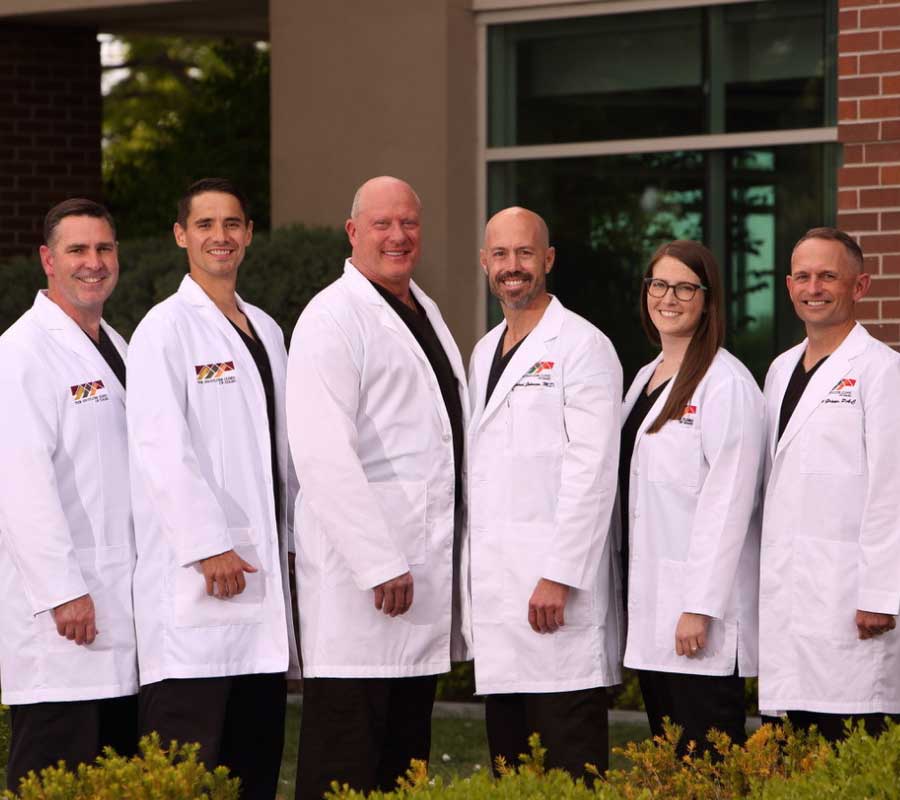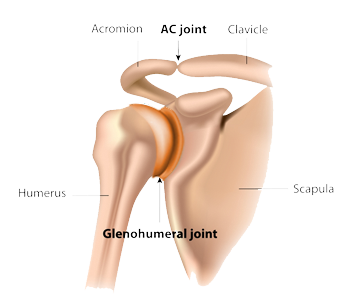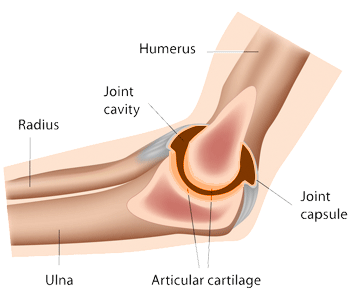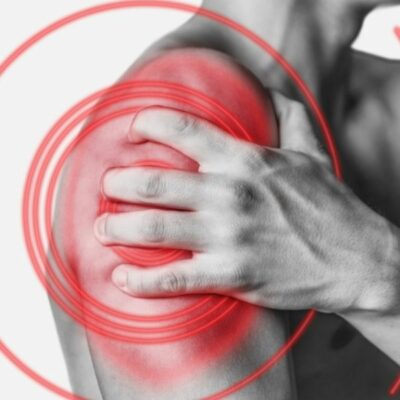Capsulolabral and Glenoid Reconstruction Surgeons

Are you experiencing shoulder instability? Shoulder instability can be caused by a shoulder dislocation. The capsulolabral and glenoid reconstruction surgeons at Shoulder Clinic of Idaho provide diagnosis and both surgical and nonsurgical treatment options for patients in the Boise area who are suffering from shoulder instability. Contact the Shoulder Clinic of Idaho team today!
What is shoulder instability?
The shoulder is the most mobile joint in the human body, allowing the arm to reach, rotate, bear weight, and lift overhead. This great amount of mobility makes the shoulder more susceptible to shoulder instability. Shoulder instability is the inability of the ball (humerus) to remain in the socket (glenoid) during normal use of the shoulder. If the shoulder is traumatically injured or dislocated, shoulder instability may often the result. The surrounding soft tissues become damaged, which causes the shoulder to become loose and slip out of place. Additionally, the socket (glenoid) can be damaged with repeated episodes of shoulder dislocation which can make a shoulder instability problem much more challenging to treat. Repeated episodes of shoulder dislocation create bone injuries on the socket (glenoid) and ball (humerus) that may require reconstruction to optimize the comfort and function of the shoulder. If the condition becomes chronic, and recurrent dislocations and shoulder instability episodes occur you will need to find a shoulder specialist with experience in reconstructing these damaged structures as a simple labral repair will not be sufficient to cure the problem. The orthopedic shoulder specialists at The Shoulder Clinic of Idaho have extensive experience and training in addressing these complex problems and serve patients in Boise, Meridian, Nampa, and the surrounding communities of the Treasure Valley. They commonly diagnose and treat shoulder instability as a routine part of their shoulder practice.
What is Capsulolabral Reconstruction?
Capsulolabral reconstruction, also known as The Bankart Repair is the most common surgery performed on patients with chronic shoulder instability. The most common form of ligament injury, a Bankart lesion occurs when the ligaments are torn from the front of the shoulder socket. The orthopedic shoulder specialists at The Shoulder Clinic of Idaho perform capsulolabral reconstruction by sewing the torn tissue back to the rim of the socket. This procedure is successful in stabilizing the shoulder joint and lowering the risk of further dislocations. When bone injuries occur in conjunction with a torn labrum a glenoid reconstruction procedure may also be required to optimize the comfort and function of the shoulder.
What is Glenoid Reconstruction?
After a traumatic shoulder separation or traumatic shoulder dislocation, patients may experience damage, bone loss or a fracture of the glenoid (part of the shoulder blade that forms the socket of the shoulder). A bone procedure which may require fracture fixation or a bone grafting procedure may be required. The shoulder specialists at The Shoulder Clinic of Idaho have experience in performing this surgery either arthroscopically through small incisions as well as in an open fashion. If bone loss of the glenoid (socket) is significant, it may require transfer of bone from one part of the body to another. This specialized reconstructs the socket of the shoulder, prevents further shoulder dislocations, and should be performed only by those surgeons who specialize in shoulder surgery.
Are you a candidate for capsulolabral and/or glenoid reconstruction?
There are two ways to initiate a consultation with the Shoulder Clinic of Idaho:
You can call our office and schedule an appointment with one our shoulder specialists.
You can schedule an office consultation with a member of our shoulder team.
Why would I need both Capsulolabral and Glenoid Reconstruction?
In certain patients, the damage after a shoulder dislocation may be so severe that both the capsulolabral tissue and the bone of the glenoid may require repair. Patients may require this special type of shoulder surgery when patients have developed recurrent episodes of shoulder instability despite previous attempts at surgical treatment. Contact athletes, collision athletes (such as rugby or football players), patients with shoulder laxity and patients with failed previous surgeries and reconstructions are excellent candidates for this combined reconstructive procedure. The orthopedic shoulder specialists at The Shoulder Clinic of Idaho can diagnose and treat patients with chronic shoulder dislocations, chronic shoulder instability as well as patients with complex traumatic shoulder injuries.
For additional resources and information on capsulolabral and glenoid reconstruction, or to learn how you can be treated for chronic shoulder instability, please contact the orthopedic specialists at The Shoulder Clinic of Idaho, serving patients in Boise, Meridian, Nampa, and the surrounding communities of the Treasure Valley.



